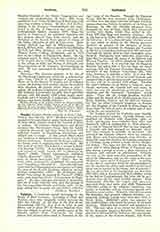

Vandal, ALBERT, French writer, b. at Paris, July 7, 1853; d. there, August 30, 1910. His father was director general of the postal service under the Second Empire. At first Albert Vandal entered the Council of State as auditor. Of moderate temperament and liberal opinions, the Government found that his family traditions prevented him from being devoted with sufficient warmth to Republican institutions and obliged him to resign. At this period Albert Sorel was professor of diplomatic history at the Ecole des Sciences Politiques. Vandal was his disciple and later his friend, prior to replacing him in his chair. His first book is entitled “En Karriole a travers la Suede et la Norvege” (1876). It was followed by an important historical work, “Louis XV et Elisabeth de Russie” (1882). Vandal subsequently published “Pacha Bonneval” (1885), “Une ambassade francaise en Orient sous Louis XV” (1887). But the work which permanently established his reputation was “Napoleon et Alexandre I”. This splendid book twice won the Gobert grand prix and opened to Vandal the door of the French Academy, which he entered without competition (1897). He afterwards published “Les voyage du marquis de Naointel” (1901), and a very important book, “L’avenement de Bonaparte”. He was a colleague and friend of Brunetiere, and one of those Catholics who, after the passage of the law separating Church and State, wrote to the pope asking him to accept the associations cultuelles.
GEORGES BERTRIN

